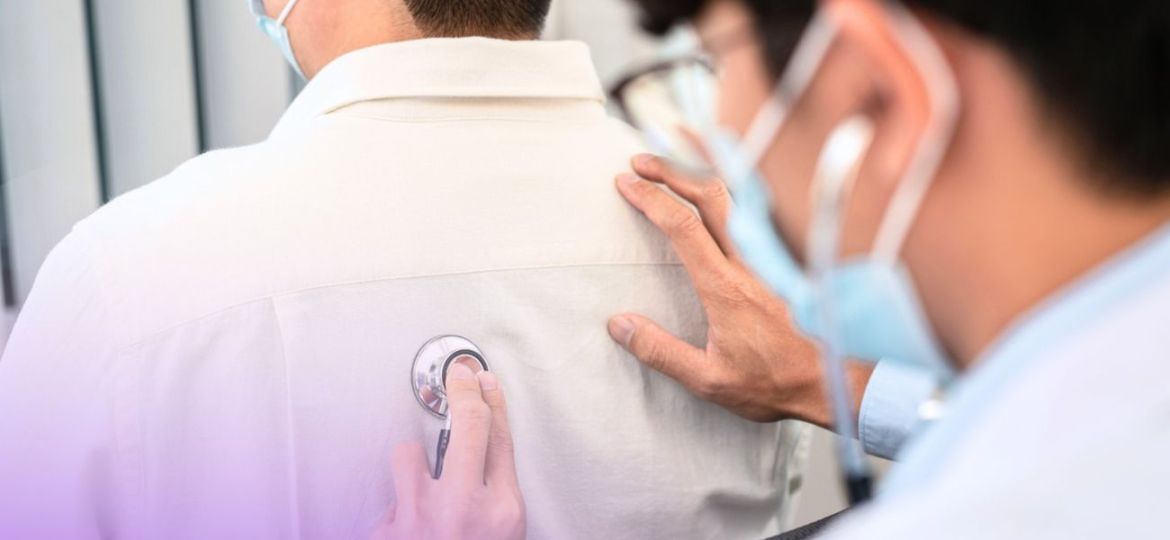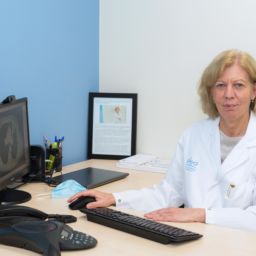
Breathing is life, but for millions of people living with lung diseases, each breath can be a constant struggle. These conditions not only threaten lives but present complex challenges in terms of diagnosis and treatment.
However, a groundbreaking European project, AI4LUNGS, which includes the participation of VHIO’s Thoracic Tumors Group, led by Dr. Enriqueta Felip, is leading the way in transforming lung health using Artificial Intelligence (AI) to help make a more personalised treatment for faster, more accurate diagnoses.
AI4LUNGS, funded by the European Union under the Horizon Europe Programme, has successfully completed its first year and is already making significant strides toward improving the lives of patients and physicians dealing with lung pathologies. The project is a collaboration of 18 organisations from 10 countries working together on a shared mission: to create innovative digital solutions for lung disease diagnosis and treatment.
“We are on a mission to create a digital twin to support physicians in their daily routines, particularly with lung pathologies,” said Hélder P. Oliveira from INESC TEC, project lead. “Our goal is to provide AI-driven algorithms that enhance the accuracy of diagnosis and treatment by using the same data doctors already rely on—giving them additional insights to make better decisions.” Helder’s colleague Duarte Dias adds: “This research is unique in its ability to support the lung cancer stratification process, which is crucial in the fight against this devastating disease.”
VHIO’s role in this project, which includes the participation of Dr. Alex Martínez, medical oncologist and researcher in VHIO’s Thoracic Tumors Group, is focused on providing retrospective clinical data on patients with non-small cell lung cancer according to the clinical criteria agreed upon by the project’s various clinical partners.
Focus on patient-centric outcomes In November 2024, AI4LUNGS launched its Stakeholder Forum, an initiative that brings together clinicians, researchers, policy influencers, and healthcare administrators. The forum ensures that the solutions being developed are aligned with the real needs of patients, physicians, and healthcare systems across Europe.
“Innovative healthcare ideas are exciting, but they need to work in the real world,” says Emma Tsai from Future Needs, project Communication & Dissemination Leader. “By involving healthcare stakeholders, we can better understand how new solutions will fit into existing healthcare systems and improve patient care.” She adds “The forum is open to stakeholders across the healthcare sector, and interested individuals are invited to learn more and apply to join on the project’s website: https://www.ai4lungs.eu/stakeholders-forum”
Data at the core In addition to the forum, the AI4LUNGS clinical partners, Centro Hospitalar de Vila Nova de Gaia/Espinho, EPE (Portugal), Mor Research Applications (Israel), Cancer Registry of Norway, and Vall d’Hebron Institute of Oncology (Spain), have made significant progress by submitting their clinical study proposals to ethical committees. Ethical approval is a critical step in ensuring that the data collected is handled with the utmost care, confidentiality, and in accordance with regulations like GDPR.
Once approved, clinical data collection will begin in February 2025, marking an important milestone in the development of AI-based diagnostic tools. This data will fuel the creation of robust AI algorithms that can support more informed clinical decision-making, ultimately improving patient outcomes.
About AI4LUNGS
The AI4LUNGS project officially started on 1 January 2024, with a duration of 3.5 years. Funded by the European Union under the Horizon Europe Programme (Grant Agreement No. 101080756), the project has received €6.9 million. It focuses on computational models for new patient stratification strategies (RIA) under the HORIZON-HLTH-2022-TOOL-12-01-two-stage call. The consortium consists of 18 partners across 10 countries, working together to develop AI-driven solutions aimed at improving lung health.





















